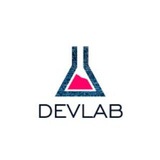Introduction to Zig Programming Language
Introduction:
The Zig programming language is a relatively new systems programming language known for its focus on performance, safety, and simplicity. In this post, we'll explore the key features and concepts of Zig, and discuss why it's gaining attention among developers.
Origin and Purpose:
Provide a brief overview of Zig's origin and the motivation behind its creation.
Highlight any notable contributors or organizations involved in its development.
Key Features:
Emphasize Zig's focus on performance, safety, and simplicity.
Discuss how Zig aims to address common pitfalls and challenges in systems programming.
Mention specific features that set Zig apart from other languages, such as compile-time execution, comptime, and error handling.
Syntax and Structure:
Provide an overview of Zig's syntax, highlighting its similarities or differences with other programming languages.
Discuss how Zig enforces strict rules to prevent undefined behavior and increase code reliability.
Mention any unique language constructs or patterns that are commonly used in Zig.
Memory Management and Safety:
Explain how Zig handles memory management and resource allocation.
Discuss Zig's approach to preventing common memory-related bugs, such as null pointer dereferences or memory leaks.
Highlight any built-in safety mechanisms, such as Zig's optional type system or its support for static analysis.
Ecosystem and Community:
Explore the current state of Zig's ecosystem, including available libraries, tools, and frameworks.
Mention any notable projects or success stories built using Zig.
Provide information about the community's size, activity, and available resources for learning and support.
Use Cases and Applications:
Discuss the domains and scenarios where Zig is particularly well-suited.
Highlight examples of real-world projects or industries that have adopted Zig successfully.
Conclusion:
Summarize the key points discussed in the post and conclude with an outlook on the future of Zig, including any upcoming developments or features.
#ZIG #Language #Introduction
Introduction:
The Zig programming language is a relatively new systems programming language known for its focus on performance, safety, and simplicity. In this post, we'll explore the key features and concepts of Zig, and discuss why it's gaining attention among developers.
Origin and Purpose:
Provide a brief overview of Zig's origin and the motivation behind its creation.
Highlight any notable contributors or organizations involved in its development.
Key Features:
Emphasize Zig's focus on performance, safety, and simplicity.
Discuss how Zig aims to address common pitfalls and challenges in systems programming.
Mention specific features that set Zig apart from other languages, such as compile-time execution, comptime, and error handling.
Syntax and Structure:
Provide an overview of Zig's syntax, highlighting its similarities or differences with other programming languages.
Discuss how Zig enforces strict rules to prevent undefined behavior and increase code reliability.
Mention any unique language constructs or patterns that are commonly used in Zig.
Memory Management and Safety:
Explain how Zig handles memory management and resource allocation.
Discuss Zig's approach to preventing common memory-related bugs, such as null pointer dereferences or memory leaks.
Highlight any built-in safety mechanisms, such as Zig's optional type system or its support for static analysis.
Ecosystem and Community:
Explore the current state of Zig's ecosystem, including available libraries, tools, and frameworks.
Mention any notable projects or success stories built using Zig.
Provide information about the community's size, activity, and available resources for learning and support.
Use Cases and Applications:
Discuss the domains and scenarios where Zig is particularly well-suited.
Highlight examples of real-world projects or industries that have adopted Zig successfully.
Conclusion:
Summarize the key points discussed in the post and conclude with an outlook on the future of Zig, including any upcoming developments or features.
#ZIG #Language #Introduction
